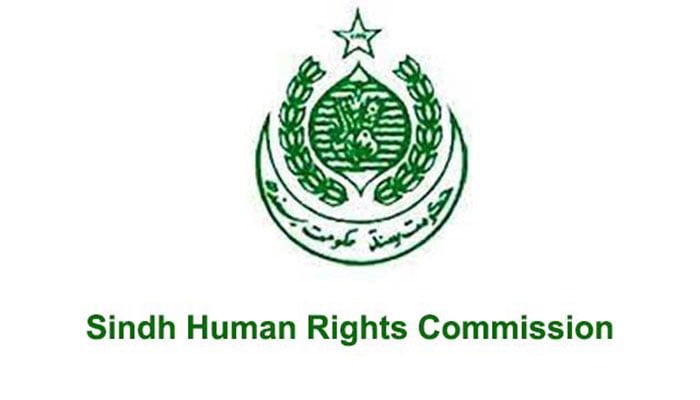Bodies set up by Sindh govt to collaborate to meet challenges
Heads of several commissions established by the Sindh government agreed during a joint meeting on Wednesday to develop information-sharing and complaint-referral mechanisms, improve the commissions’ performance and focus on other areas of cooperation deemed necessary to ensure effective service delivery.
The Sindh Human Rights Commission (SHRC) held a consultation at a hotel, where heads of several commissions were invited to deliberate on and develop information-sharing and complaint-referral mechanisms.
They also talked about how to improve the efficacy of the commissions, the challenges they face in implementing their respective laws and any other arena of cooperation deemed necessary to ensure effective service delivery.
The objective of the meeting was to find ways to provide the maximum relief to the aggrieved people while acting within their mandate to protect the people’s rights as outlined in Article 9 of the 1973 constitution.
The consultation was a follow-up to a meeting held on February 21, 2020, when all the commissions established by the Sindh government discussed different issues and their challenges. The SHRC postponed follow-up meetings twice because of the Covid-19 pandemic.
SHRC Chairperson Justice (retd) Majida Razvi said the commission she leads had a staffing and funding shortage initially, but the issue was resolved due to special efforts and the help of the chief minister and the chief secretary.
She stressed that all the commissions that have been set up by the provincial government should support each other in their cases as well as in other arenas. Justice (retd) Shahnawaz Tariq, provincial ombudsman for the protection against harassment of women at the workplace, said the issues of almost all the commissions are the same. “Their work should be appreciated because almost all the commissions are working with limited staff and resources.”
Sindh Health Care Commission (SHCC) CEO Dr Ahsan Qavi Siddiqi said that before the establishment of the commissions, the government used to rely on its departments. “But after the establishment of different commissions, the responsibilities of the departments lessened, but the mandates of various commissions still often overlap and result in confusion regarding their roles and responsibilities. Lack of motivation among the staff is also an issue due to contractual hiring and job insecurity.”
Sindh Commission on the Status of Women Chairperson Nuzhat Shireen brought up her commission’s financial woes, saying that they have been forced to be in a public-private partnership because of very low funds. “We monitor all women-related cases and share reports on them with the CM and the CS.”
Dr Syed Ershad Hussain Kazmi, additional director of the Communicable Disease Control (HIV/AIDS) and secretary of the Sindh HIV/AIDS Control, Treatment & Protection Commission, spoke about his commission’s work, emphasising the various trainings conducted as part of their work to combat AIDS.
The Sindh Public Safety Commission’s assistant secretary Hafeezullah Abbasi and member Rubina Brohi, Occupational Safety & Health Council Secretary Laeeq Ahmed, SHCC Commissioner Khalid Sheikh, the National Commission on the Rights of Child’s Iqbal Detho and others also spoke on the occasion.
-
 Michelle Obama Gets Candid About Spontaneous Decision At Piercings Tattoo
Michelle Obama Gets Candid About Spontaneous Decision At Piercings Tattoo -
 Bunnie Xo Shares Raw Confession After Year-long IVF Struggle
Bunnie Xo Shares Raw Confession After Year-long IVF Struggle -
 Brooks Nader Reveals Why She Quit Fillers After Years
Brooks Nader Reveals Why She Quit Fillers After Years -
 Travis Kelce Plays Key Role In Taylor Swift's 'Opalite' Remix
Travis Kelce Plays Key Role In Taylor Swift's 'Opalite' Remix -
 How Jennifer Aniston's 57th Birthday Went With Boyfriend Jim Curtis
How Jennifer Aniston's 57th Birthday Went With Boyfriend Jim Curtis -
 JoJo Siwa Shares Inspiring Words With Young Changemakers
JoJo Siwa Shares Inspiring Words With Young Changemakers -
 James Van Der Beek Loved Ones Breaks Silence After Fundraiser Hits $2.2M
James Van Der Beek Loved Ones Breaks Silence After Fundraiser Hits $2.2M -
 Disney’s $336m 'Snow White' Remake Ends With $170m Box Office Loss: Report
Disney’s $336m 'Snow White' Remake Ends With $170m Box Office Loss: Report -
 Travis Kelce's Mom Donna Kelce Breaks Silence On His Retirement Plans
Travis Kelce's Mom Donna Kelce Breaks Silence On His Retirement Plans -
 Premiere Date Of 'Spider-Noir' Featuring Nicolas Cage Announced
Premiere Date Of 'Spider-Noir' Featuring Nicolas Cage Announced -
 Pedro Pascal's Sister Reveals His Reaction To Her 'The Beauty' Role
Pedro Pascal's Sister Reveals His Reaction To Her 'The Beauty' Role -
 Kate Middleton Proves She's True 'children's Princess' With THIS Move
Kate Middleton Proves She's True 'children's Princess' With THIS Move -
 Paul Anka Reveals How He Raised Son Ethan Differently From His Daughters
Paul Anka Reveals How He Raised Son Ethan Differently From His Daughters -
 'A Very Special Visitor' Meets Queen Camilla At Clarence House
'A Very Special Visitor' Meets Queen Camilla At Clarence House -
 Jodie Turner Smith Shares One Strict Rule She Follows As A Mom
Jodie Turner Smith Shares One Strict Rule She Follows As A Mom -
 Hailey Bieber Reveals KEY To Balancing Motherhood With Career
Hailey Bieber Reveals KEY To Balancing Motherhood With Career




